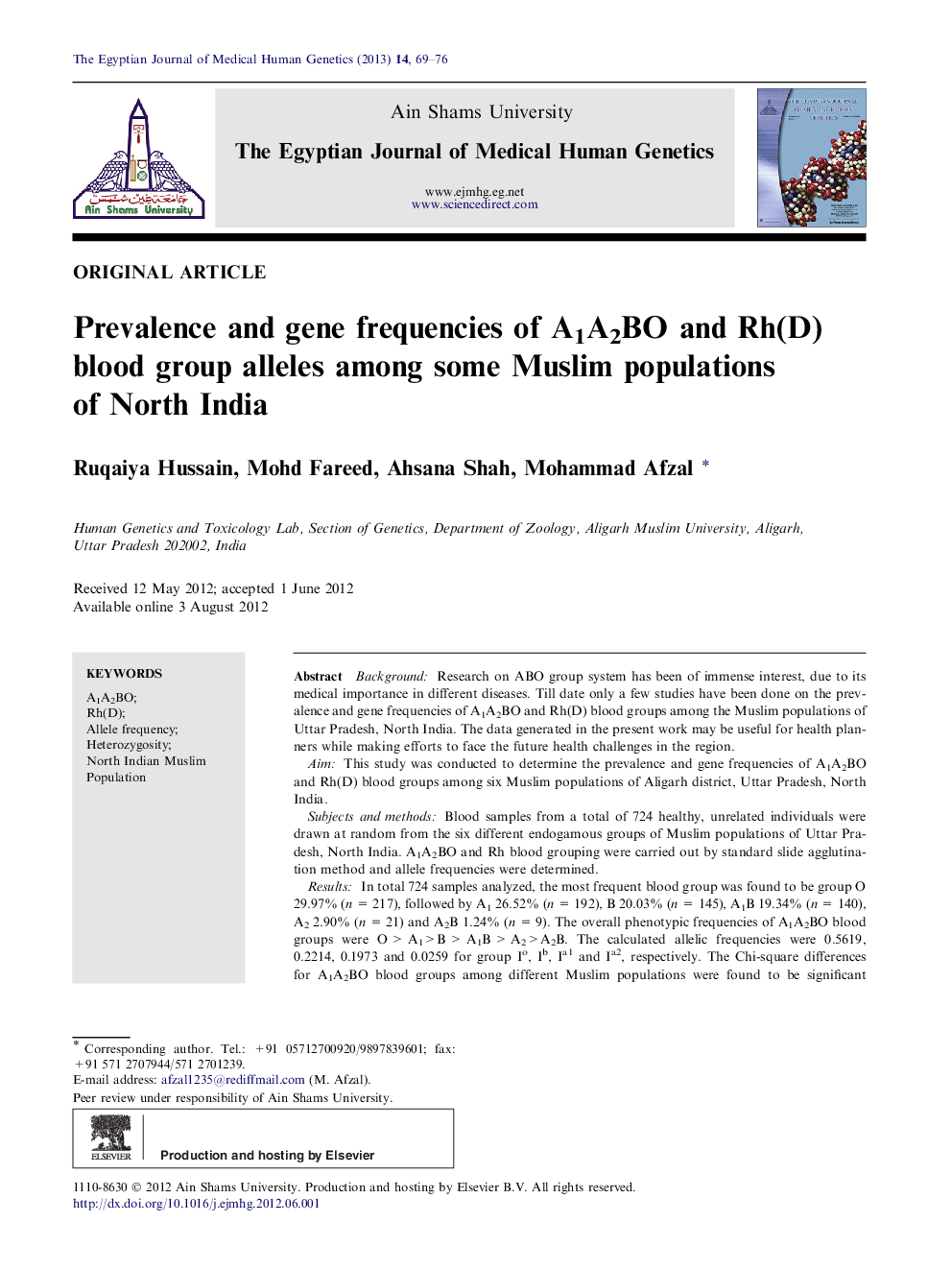| کد مقاله | کد نشریه | سال انتشار | مقاله انگلیسی | نسخه تمام متن |
|---|---|---|---|---|
| 2178192 | 1549633 | 2013 | 8 صفحه PDF | دانلود رایگان |

BackgroundResearch on ABO group system has been of immense interest, due to its medical importance in different diseases. Till date only a few studies have been done on the prevalence and gene frequencies of A1A2BO and Rh(D) blood groups among the Muslim populations of Uttar Pradesh, North India. The data generated in the present work may be useful for health planners while making efforts to face the future health challenges in the region.AimThis study was conducted to determine the prevalence and gene frequencies of A1A2BO and Rh(D) blood groups among six Muslim populations of Aligarh district, Uttar Pradesh, North India.Subjects and methodsBlood samples from a total of 724 healthy, unrelated individuals were drawn at random from the six different endogamous groups of Muslim populations of Uttar Pradesh, North India. A1A2BO and Rh blood grouping were carried out by standard slide agglutination method and allele frequencies were determined.ResultsIn total 724 samples analyzed, the most frequent blood group was found to be group O 29.97% (n = 217), followed by A1 26.52% (n = 192), B 20.03% (n = 145), A1B 19.34% (n = 140), A2 2.90% (n = 21) and A2B 1.24% (n = 9). The overall phenotypic frequencies of A1A2BO blood groups were O > A1>B > A1B > A2>A2B. The calculated allelic frequencies were 0.5619, 0.2214, 0.1973 and 0.0259 for group Io, Ib, Ia1 and Ia2, respectively. The Chi-square differences for A1A2BO blood groups among different Muslim populations were found to be significant (χ2 = 41.22, df = 25, p < 0.02). Out of total 724 samples, 613 (84.67%) samples were Rh+ve and 111 (15.33%) were Rh−ve.
Journal: Egyptian Journal of Medical Human Genetics - Volume 14, Issue 1, January 2013, Pages 69–76